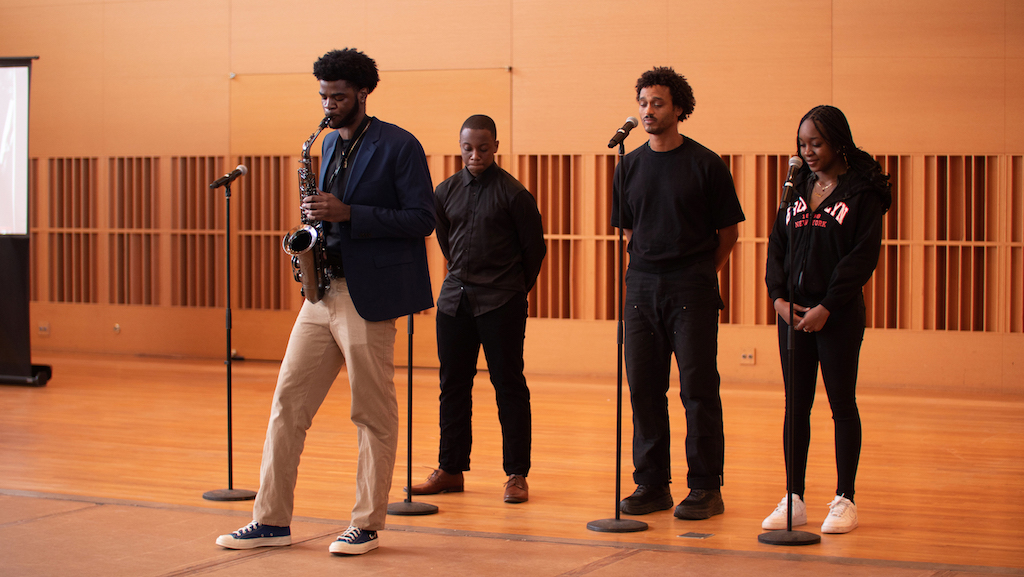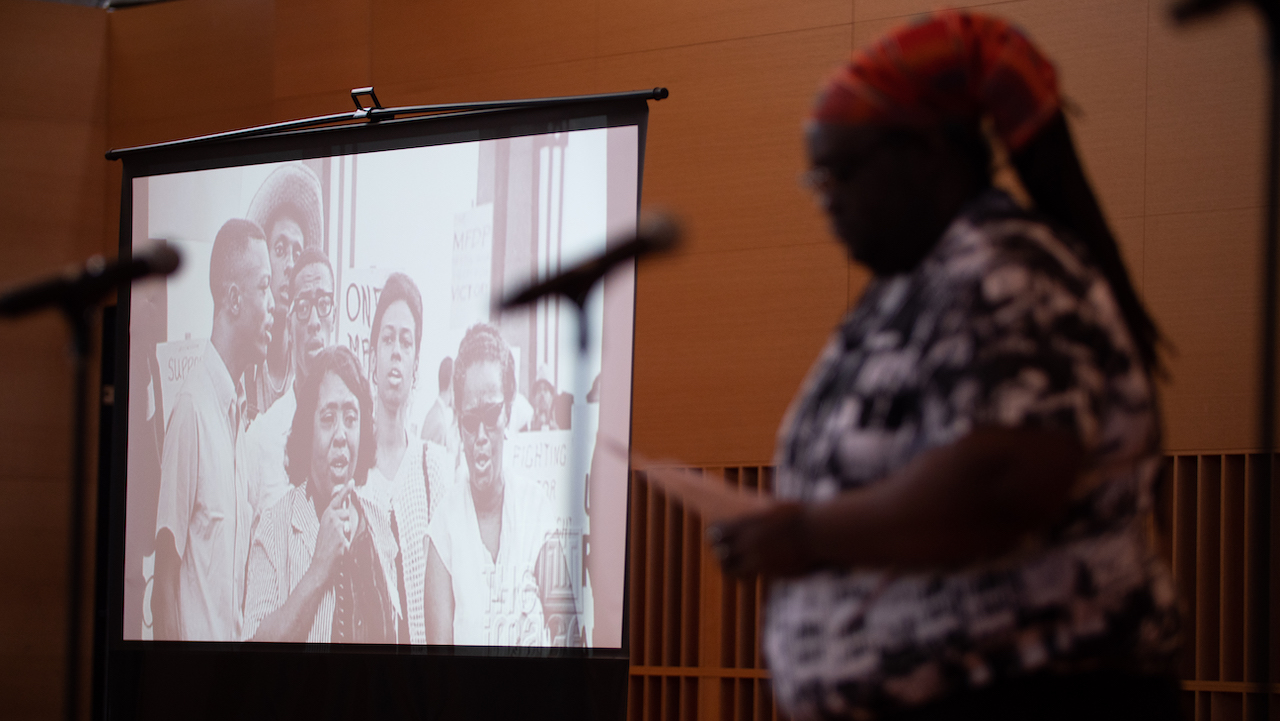
The Office for Equity and Inclusion (OEI) hosted the University’s third annual Equity and Inclusion Week from Monday, Jan. 30 to Friday, Feb. 3. A small committee composed of University administrators, including the committee included Interim Vice President for Equity and Inclusion April Ruiz, Director of the Office of Student Involvement Joanne Rafferty, and Director of the Resource Center Demetrius Colvin, planned the programming.
The activities of Equity and Inclusion Week celebrated diversity among the University’s students, staff, faculty, and other stakeholders, Ruiz explained in an email to The Argus. The events aimed to promote the expansion of collective understanding about diversity, equity, and inclusion.
“We created a lineup of gatherings, workshops, and events that celebrate the diversity of identities held by members of our community, and that also facilitate our growth and learning as we all continue to work toward being better supports and allies to one another,” Ruiz wrote. “The programs were intended to encourage us to reflect, but also to invite us to learn and to act and to practice our values.”
Equity and Inclusion Week began in 2021 as the Diversity Summit in the wake of the Black Lives Matter movement and the wave of heightened social consciousness which followed. Since its conception, Equity and Inclusion Week has evolved to include programs that offer a wider range of themes and methods of engagement.
“What began as a one-day Diversity Summit just three years ago has evolved in wonderful ways to include a greater number of topics, and to offer programs at different times of day and through different modes (for example, participating in a workshop or attending a film screening),” Ruiz wrote. “In this way, we hoped folks who wished to take part in E&I Week could find something that aligned with their schedule and with how they learn or wished to engage.”
Ruiz emphasized that the events planned for Equity and Inclusion Week were designed to build upon the University’s existing values relating to diversity, equity, and inclusion. The events also highlighted the University’s culture of activism and discourse around social justice.
“Wesleyan is a place with a long history of activism and of critical dialogue around the matters of equity and justice,” Ruiz wrote. “Through the community’s participation in the week’s events, by opening ourselves up to and stepping forward in the work of equity and inclusion, these critical traditions continue.”
The week began with a keynote address from Dr. Jonathan Holloway, the first Black president of Rutgers University. In his Jan. 30 speech, entitled “Being in the Room Where It Happens: Power, Invisibility and Silence,” Holloway discussed the tensions and contradictions inherent to the experience of Black Americans, especially those in positions of power.

The programming also sought to build awareness around accessibility and offer events that could attract a wide section of the community. The leadership lunch, titled “Planning an Accessible Event” and held on Tuesday, Jan. 31, was one such event.
“We wanted to plan events that would appeal to all populations on campus,” Rafferty wrote in an email to The Argus. “‘Planning an Accessible Event’ was originally planned for students, but it became apparent that the information provided would be helpful to anyone hosting an event on campus.”
In a similar vein, Ruiz and Dean for Academic Advancement Laura Patey led a faculty-oriented workshop on Wednesday, Feb. 1 about inclusive teaching practices. The events on the following day included a BIPOC Connection lunch, during which attendees participated in Black History Month Bingo and a workshop entitled “From Statement to Practice,” designed to teach participants how to create and actualize diversity, equity, inclusion and belonging statements for various organizations, teams, and departments.
“I was excited to be part of the planning for the event ‘From Statement to Practice.’ This was a workshop that would assist folks to create a DEIB (diversity, equity, inclusion and belonging) statement for their organizations, teams, [or] departments and then brainstorm ways to actualize these statements into practice,” Rafferty wrote. “We were able to bring back to campus a Wes Alum, and former Dean for Equity and Inclusion, Teshia Levy-Grant ’00. It was an impactful workshop, and we were very happy with the turnout and conversations [we] had.”
The inaugural Queer+ Lunch, open to LGBTQ members of faculty and staff, also took place on Feb. 2.
The week concluded with the 17th annual Martin Luther King Commemoration, held on Friday, Feb. 3. This event also served as the launch for the University’s Resource Center-led programming to celebrate Black History Month. Ruiz explained that the planning committee intentionally scheduled Equity and Inclusion Week for the end of January to build anticipation within the community for Black History Month, especially since both initiatives sponsored the Commemoration.
The attendees of the Commemoration enjoyed a performance by Black Raspberry, the University’s only all-Black student music group, and watched Andrea Jenkins, the first openly trans African American woman elected to public office, deliver the keynote address. Colvin, who invited Jenkins to speak at the event, underscored Jenkins’ revolutionary career in politics and engagement in matters of civil rights and policing throughout her career.
“I’m so interested [in] her career and her work [because] she’s been serving as a politician in Minneapolis, [which] has for the past decade been the hotbed of a lot of Black Lives Matter protests and activism,” Colvin said. “So her entire political career has come up during that time in dealing with at least four city shutdowns, different protests, [and] the killing of unarmed black people by cops. To be a transgender black woman in Minneapolis during such a tumultuous time, I’m just so curious and interested how she’s navigated all those conflicts [and] what keeps her motivated to do the work. I think she’s gonna be a really impactful presence on campus.”
Colvin emphasized that Equity and Inclusion Week transmitted the message that everything is a work in still developing.
“We’re all a work in progress,” Colvin said. “Our relationships and our society [are] a work in progress, and we can do the work. Sometimes, we think of change as this far-off thing, but it’s an everyday [process]…. Hopefully we can continue encouraging each other and supporting each other to do the work and think about what our work is in pragmatic and spiritual and emotional ways.”
Sida Chu contributed reporting.
Sulan Bailey can be reached at sabailey@wesleyan.edu.


Leave a Reply